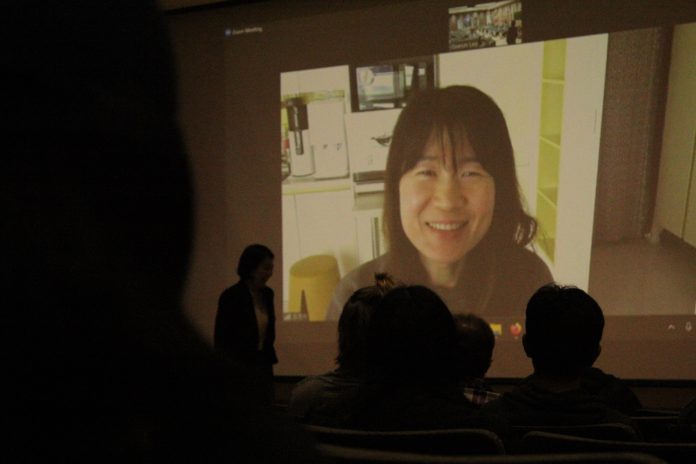It’s a wonder how our bodies commemorate previous endeavors with marks of time. Both the beauty and hardship of our lives are physically inscribed onto us, indefinitely tainting what once was a clean slate.
Director Seol Sun presents such manifestations through Yoon Gyunsang and Jang Gwi-deok in her documentary Time of Seeds. Shown in Peeler Art Center on Feb. 5, Sun captures the process of the two farmers’ labors through a selection of phases derived from the twenty-four lunar terms. Each term holds particular significance to the respective agricultural arrangement demonstrated by the two individuals. Despite their age, they remain relentless while enduring joint pains, calluses, and lacerations. The two voice that they tolerate these routines of strain as a dedication to cultivating indigenous seeds.
Amidst the rise of industrialization in the 1960’s, South Korea’s agriculture diminished rapidly. This meant that the knowledge of farming native seeds declined as well. One appalling statistic can account for the country’s grain self-sufficiency dropping to 20% as a prolonged impact of being pressured to enter the global agricultural market. This has left South Korea dependent on food imports by global corporations with a mere 7% of local farmers in the total population. Time of Seeds highlights this issue while acknowledging the strenuous efforts of those who implement traditional harvesting techniques in light of the country’s changes to its agrarian system. Evidently, there is a sense of pride in sustaining one of the many practices that historically encapsulated the nation’s heritage.
Sun denotes the individuals' commitment by implementing extensive scenes where either Gyunsang or Gwi-deok are enveloped in tedious feats required to prepare for harvest. She emphasizes recognizing the farmers’ genuine passion instead of strictly focusing on the geopolitical aspects or biodiversity conservation. It is a demonstration of activism harbored in cultural preservation.
Time of Seeds illustrates how embodying one’s work without tormenting oneself with the ramifications is an act that few can accomplish. The farmers scarcely, if at all, expressed any complaints. Instead, they proclaimed the importance of continuing regardless of the toil. They are instrumental figures of empowerment that Seol Sun admirably represents.



